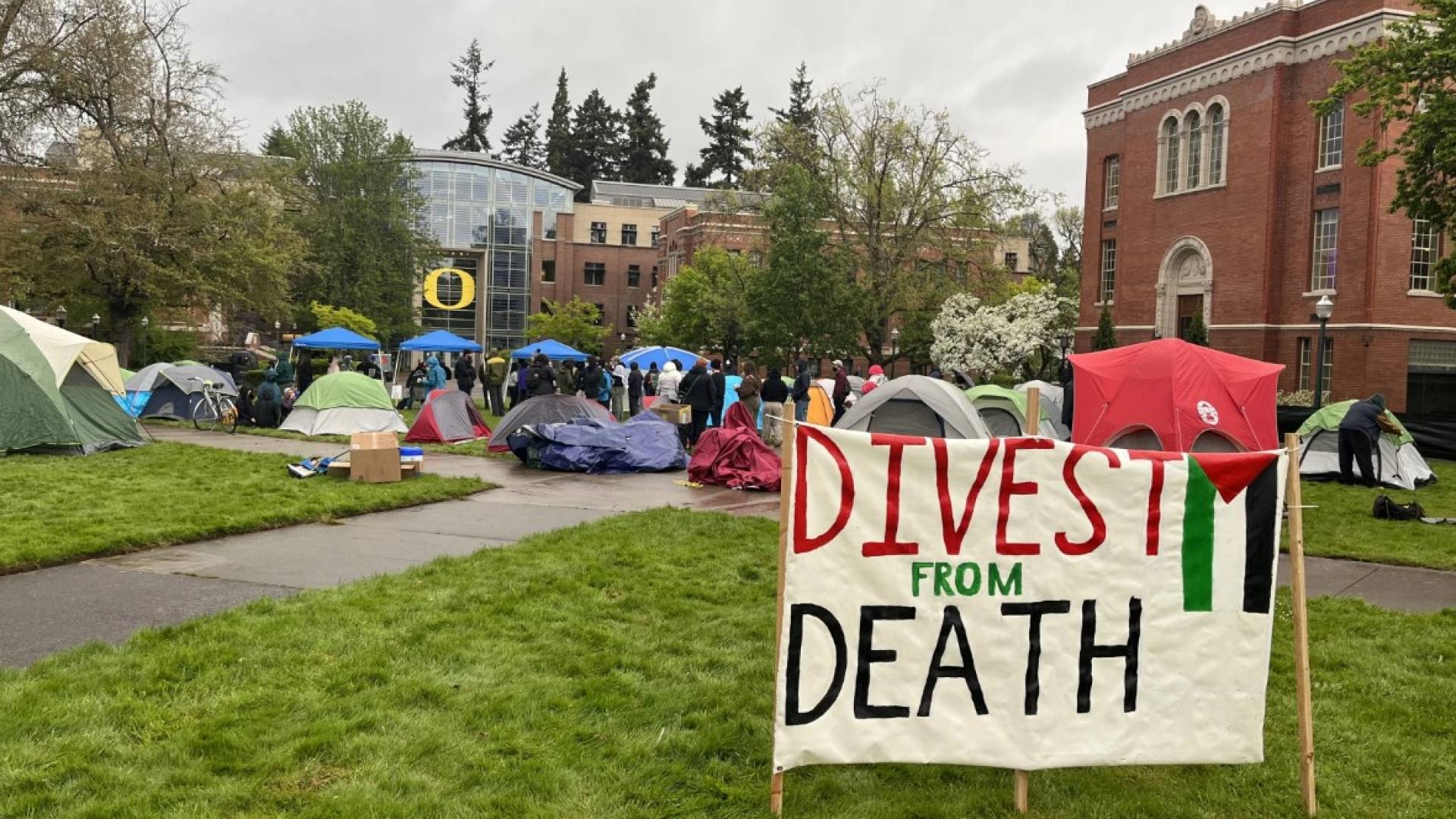Pro-Palestine protest on the University of Oregon campus (Credit: KLCC)
Academic boycotts against 'Israel' surge despite Gaza ceasefire: Report
Note: AI technology was used to generate this article’s audio.
- Academic boycotts targeting 'Israeli' researchers and institutions have surged in Europe.
- The trend continues despite the end of the war on Gaza.
- Experts warn of potential isolation for 'Israel’s' higher education system.
- Individual researchers face exclusion from international programs and collaborations.
A new 'Israeli' report highlights a sharp increase in academic boycotts against researchers and institutions in 'Israel', showing that pressure from European academics and universities has continued even after the war on Gaza ended.
Prepared by the Academic Boycott of Israel Monitoring Team, established by the Committee of University Presidents in Tel Aviv, the report says 'Israel’s' negative image in Europe is “so deeply entrenched that political moves alone are not enough to shift public perception.”
Published by The Marker, the economic edition of the Hebrew newspaper Haaretz, the report noted that rather than easing after the Gaza genocide, boycott activity “increased,” with more cases filed by both institutions and individual academics. The team warned that these expanding boycott measures could push 'Israeli' higher education into “dangerous isolation that poses a real strategic threat to its international standing.”
In mid-September, Prime Minister Benjamin Netanyahu acknowledged that 'Israel' had entered “a kind of isolation,” stressing the need to prepare for a more self-reliant economy.
The report states that by November, about 1,000 European universities had imposed full academic boycotts on 'Israeli' institutions. In addition, more European researchers are reportedly refusing to collaborate with 'Israeli' colleagues or participate in joint projects.
A notable consequence is a decline in EU research grants awarded to 'Israeli' scholars under the Horizon Europe program, a key source of scientific funding. Exclusion from international research projects has contributed to this drop.
According to the report, 57 percent of boycott cases affect individual researchers, mainly through exclusion from international research groups. Institutional boycotts between universities account for 22 percent of cases, professional association boycotts 7 percent, and suspension of programs such as student exchanges and postdoctoral partnerships 14 percent.
The report concludes that the boycott movement “will accompany Israeli academia for a long time and will not ease without major regional and geopolitical changes.”




